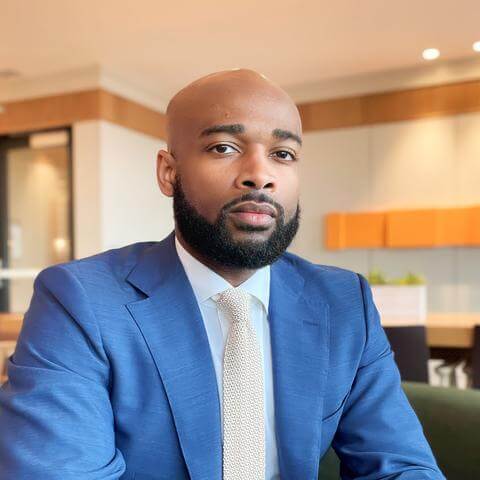My Story | Embracing Opportunities to Develop
by Kemet Azubuike
One of my fondest memories from graduate school was being part of a project that not only shaped my academic path but also reinforced my commitment to research with real-world impact. Throughout my graduate journey, I had the privilege of working for dedicated professors who fostered my growth as a researcher. I gained invaluable experience through projects like transcribing interviews for a professor’s book (before tools like Otter.ai existed), conducting interviews in D.C.’s national parks for a National Park Service grant, and being awarded the Just Julian fellowship to conduct a pilot study that later evolved into my dissertation. These experiences built a solid foundation for my research acumen, but it was one project in particular that stands out as the most meaningful.
During the COVID-19 pandemic, Howard University was one of eight schools to receive a portion of a $15 million grant from the Bill and Melinda Gates Foundation for "The Just Project." This initiative provided free COVID testing resources to these HBCUs, ensuring a safe return to campus for students, faculty, and staff. Being part of the team tasked with evaluating the project’s effectiveness and impact was a turning point in my graduate career.
Initially, I joined as a graduate research assistant, helping develop a questionnaire and analyze data, which offered me valuable insights into managing large-scale projects. As the project progressed into its second year, I was offered an opportunity for increased responsibilities. I was given the opportunity to design the evaluation framework, create an interview guide, and propose the structure for the final report. This experience allowed me to apply the skills I had learned in program evaluation and research design courses in a way that had real-world consequences.
Being entrusted with such responsibilities gave me a sense of accomplishment and deepened my understanding of how research can drive meaningful change. Our evaluation report provided key insights into the effectiveness of testing centers, the launch of campus labs, and the technologies used. It also laid the groundwork for future public health initiatives at HBCUs, while offering recommendations for improving the distribution of testing resources to underserved populations. Most importantly, this project fostered a meaningful relationship with the Gates Foundation, further highlighting the real-world significance of our work.
Looking back, this project taught me some of the most valuable lessons of my graduate experience. It showed me that graduate school is truly what you make of it. While the pressures of courses, exams, and other responsibilities are always present, real growth comes when you are given an opportunity to expand past the familiar. Perhaps the most important lesson I learned is that growth happens when you intentionally pursue it. Reflecting on my graduate school journey, this experience remains one of my fondest memories—a time when I took charge of my development, and contributed to meaningful, impactful research.

